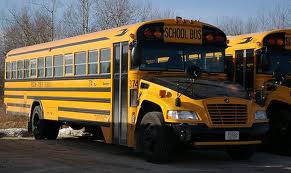Rants and Raves
Even liberal New England is falling for the voter ID scam
Wednesday, Aug 15, 2012 10:25 am
By Tim Stevens
While New England is traditionally viewed by the rest of the country as being a.) stuck in its ways and b.) liberal, the region has not been immune to the voter ID movement that has gained considerable traction in the past two years. Already, New Hampshire and Rhode Island have adopted new voter ID requirements (although it should be noted that anyone registered in Rhode Island can still vote, ID or not; the procedure is just different), and bills have been proposed in each of the other states in the region during the past calendar year.
Much has been made of these laws. The debate typically falls into two soundbyte camps: “We have to protect against fraud,†and “There is no fraud.â€
I’m definitely in the second group. To be clear, voter fraud in this country occurs at a percentage rate that is as close to zero as something can get. These laws are being proposed to increase bureaucracy — something the proponents of voter ID nearly all claim to hate — to solve a problem that literally does not exist.
The idea that these laws are being proposed to solve a fictional problem is not an insignificant point. The only reason many citizens have concerns about fraud is that pundits, typically conservatives, have told them repeatedly that voter fraud is significant. This perception, despite facts, is important. But for now, let’s put aside perception and explore the cost of state-issued IDs in my home state of Connecticut, where voter ID laws have been kicked around lately.
In Connecticut, non-driving state IDs cost $22.50, which is not out-of-line with most other states. This dollar amount may strike many of us as insignificant, but consider the working poor. For a worker receiving minimum wage, $22.50 represents approximately seven percent of their weekly paycheck. And an hourly worker may have to give up paid hours to get the ID plus pay for transportation to the DMV by bus or cab, since this is a person without a driver’s license. Considering these factors, it is not hyperbolic to suggest that voter ID requirements amount to a 21st century poll tax.
In addition, if such workers must accommodate DMV hours, they may be forced to take time off from jobs that, traditionally, are not kind to workers requesting time off. If we are, as we like to state, a country that encourages our citizens to be productive, asking citizens to choose between preparing to exercise their right to vote and keeping their jobs is an unquestionably unfair burden.
Even if a worker can get time off and pay to get to the DMV, the next hurdle may be even tougher: providing two forms proving identity, with at least one from the government’s primary list. Acceptable documents on the primary list for the purposes of voter IDs include a U.S. birth certificate or registration of birth (government-issued; hospital-issued is not acceptable), or a Certificate of Citizenship.
Here’s lies a Catch-22. In many states, you need a birth certificate to get a photo ID. In order to get said birth certificate, you need a state ID. And round and round it goes.
Secondary accepted forms, which must be paired with one item from the primary list, include a pilot’s license, pistol permit, school records, social security card, baptismal certificate, state public assistance card, or state or federal employment ID. A public assistance card typically needs to be paired with a photo ID at some point, so if you have one, chances are good you have the other. School records are not something that most people keep around to prove identity, not everyone is baptized, and how many working poor do you think have a pilot’s license?
Clearly, it would be hard to acquire a voter ID card without big changes in state systems. Now let’s take a closer look at why this burden is unfair and favors one party over the other.
Those in cities are less likely to have driver’s licenses as they are more likely to rely on public transport. Those in cities are also more likely to be minorities, working poor, or young. Those in the suburbs or rural areas are more likely to already have IDs as public transportation is more scattered and sprawl demands they drive more. Thus, a voter ID represents a higher burden on those traditionally identified as Democratic voters – minorities and the working poor – thus calling into question the Republicans’ assertion that ID requirements address possible voter fraud, and are not a ploy to make it tough for non-Republicans to cast their ballots.
So voter ID laws are burdensome because of cost, time, and documentation requirements, and they are unfair because of who they target. Knowing all that, why have them? Now add in that stuff I told you to ignore—the near zero rate of fraud, the fact that more lax voting laws do not mean more fraud, the increase in bureaucracy—and ask yourself what the point of this is. Can you find a satisfactory answer? Because I cannot.
 Tim Stevens is a regular contributor to New Paris Press. He can be reached at tim.g.stevens@gmail.com. Follow Tim on Twitter @UnGajje.






Leave a Reply